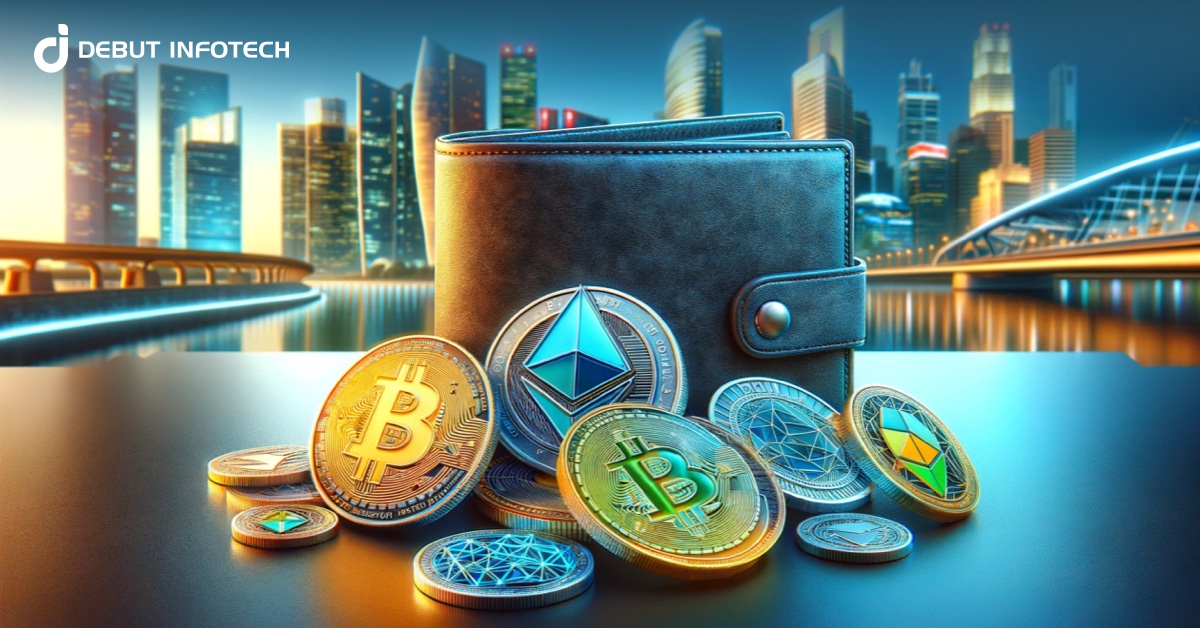In the ever-evolving world of cryptocurrency, security and user control have become paramount. As the demand for digital assets increases, so does the need for robust solutions to manage them. Centralized exchanges, which were once the primary gateway for users to store and trade their cryptocurrencies, are now being challenged by a more secure and efficient alternative—decentralized wallets.
What Are Decentralized Wallets?
A decentralized wallets is a type of digital wallet that allows users to store, send, and receive cryptocurrencies without relying on a centralized authority or third-party service. Unlike traditional wallets provided by exchanges or custodial services, decentralized wallets give users full control over their private keys, which are the cryptographic keys needed to access and manage their funds.
The essence of a decentralized wallet is its non-custodial nature. In simple terms, the user, and only the user, has access to their private keys. This is in stark contrast to centralized wallets, where a company or exchange holds the keys on behalf of the user, posing a risk of loss or theft in case of a security breach.
How Do Decentralized Wallets Work?
Decentralized wallets function using blockchain technology, the backbone of most cryptocurrencies. These wallets interact directly with the blockchain, enabling users to send and receive funds through their private keys. These keys consist of a public address (used to receive funds) and a private key (used to sign transactions and access funds).
When a user creates a decentralized wallet, a unique private key is generated, usually represented as a seed phrase—a set of 12 to 24 words that can be used to recover the wallet if the user’s device is lost or damaged. The user is responsible for securely storing this seed phrase, as losing it means losing access to their funds permanently.
Key Benefits of Decentralized Wallets
1. Full Control Over Assets
The most significant advantage of decentralized wallets is that they give users complete control over their digital assets. Since no third party holds the private keys, users are not vulnerable to exchange hacks, frozen accounts, or restrictions imposed by centralized services. The funds are entirely in the user’s hands.
2. Enhanced Security
Decentralized wallets are considered more secure than centralized wallets because they eliminate the risks associated with holding funds in an exchange or custodial service. High-profile hacks on centralized exchanges have led to the loss of millions of dollars in cryptocurrencies. By managing their own keys, users reduce the risk of theft or loss from third-party breaches.
3. Privacy and Anonymity
Another benefit of decentralized wallets is that they offer greater privacy. Since users interact directly with the blockchain, there is no need to provide personal information, such as in the case of centralized exchanges that require Know Your Customer (KYC) procedures. This makes decentralized wallets a popular choice for those who prioritize privacy in their financial dealings.
4. No Geographical Restrictions
Decentralized wallets are not limited by geography. Anyone, regardless of their location, can use them to store and transfer cryptocurrencies. Since these wallets operate on the blockchain, they do not require permission from centralized authorities, making them accessible to users in countries with restrictive financial policies.
5. Interoperability
Most decentralized wallets support multiple cryptocurrencies, allowing users to manage a diverse portfolio of digital assets in one place. Whether it's Bitcoin, Ethereum, or a variety of altcoins, users can seamlessly interact with multiple blockchain networks through a single decentralized wallet.
The Role of Decentralized Wallets in DeFi
Decentralized wallet are a critical component of the growing decentralized finance (DeFi) ecosystem. DeFi platforms allow users to trade, lend, borrow, and stake cryptocurrencies without intermediaries, and decentralized wallets serve as the gateway to these platforms. With a decentralized wallet, users can access DeFi protocols directly from their wallets, enabling them to participate in various financial services while retaining full control of their assets.
This integration with DeFi has accelerated the adoption of decentralized wallets, as users seek more efficient ways to interact with decentralized applications (dApps) and blockchain-based financial services. Whether it's yield farming, liquidity provision, or decentralized exchanges (DEXs), decentralized wallets are at the core of the DeFi revolution.
Challenges of Decentralized Wallets
Despite their numerous advantages, decentralized wallets also come with certain challenges. The most significant of these is the responsibility placed on users to safeguard their private keys. If a user loses their private key or seed phrase, there is no way to recover their funds. This is a stark difference from centralized wallets, where users may be able to recover their accounts through customer support.
Additionally, the user interface of decentralized wallets can be less intuitive for beginners. While the technology behind decentralized wallets offers enhanced security, the process of managing keys and interacting with the blockchain may present a learning curve for new users.
Related Read: The Ultimate Guide to Decentralized Cryptocurrency Wallets
Conclusion
Decentralized wallets represent a significant advancement in the world of cryptocurrency management, offering users greater control, security, and privacy over their digital assets. As the demand for decentralized finance and blockchain-based applications continues to rise, decentralized wallets will likely play an even more central role in shaping the future of finance. For cryptocurrency enthusiasts looking to maximize security and minimize reliance on third parties, decentralized wallets are an essential tool in navigating the evolving digital landscape. While they come with the responsibility of managing private keys, the benefits of enhanced control and security far outweigh the risks. In a world where digital sovereignty is increasingly important, decentralized wallets are paving the way for a more secure and autonomous financial future.






Comments